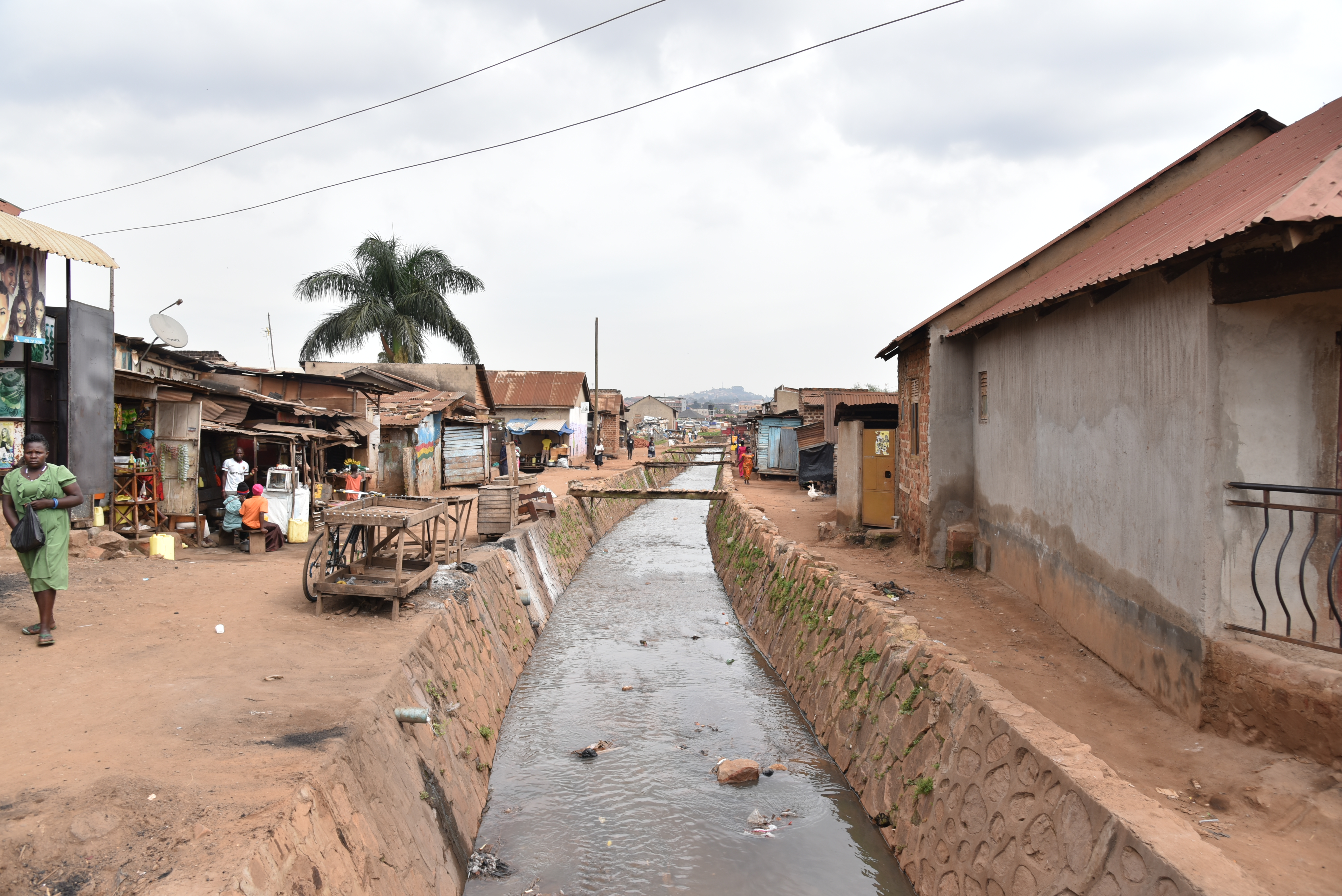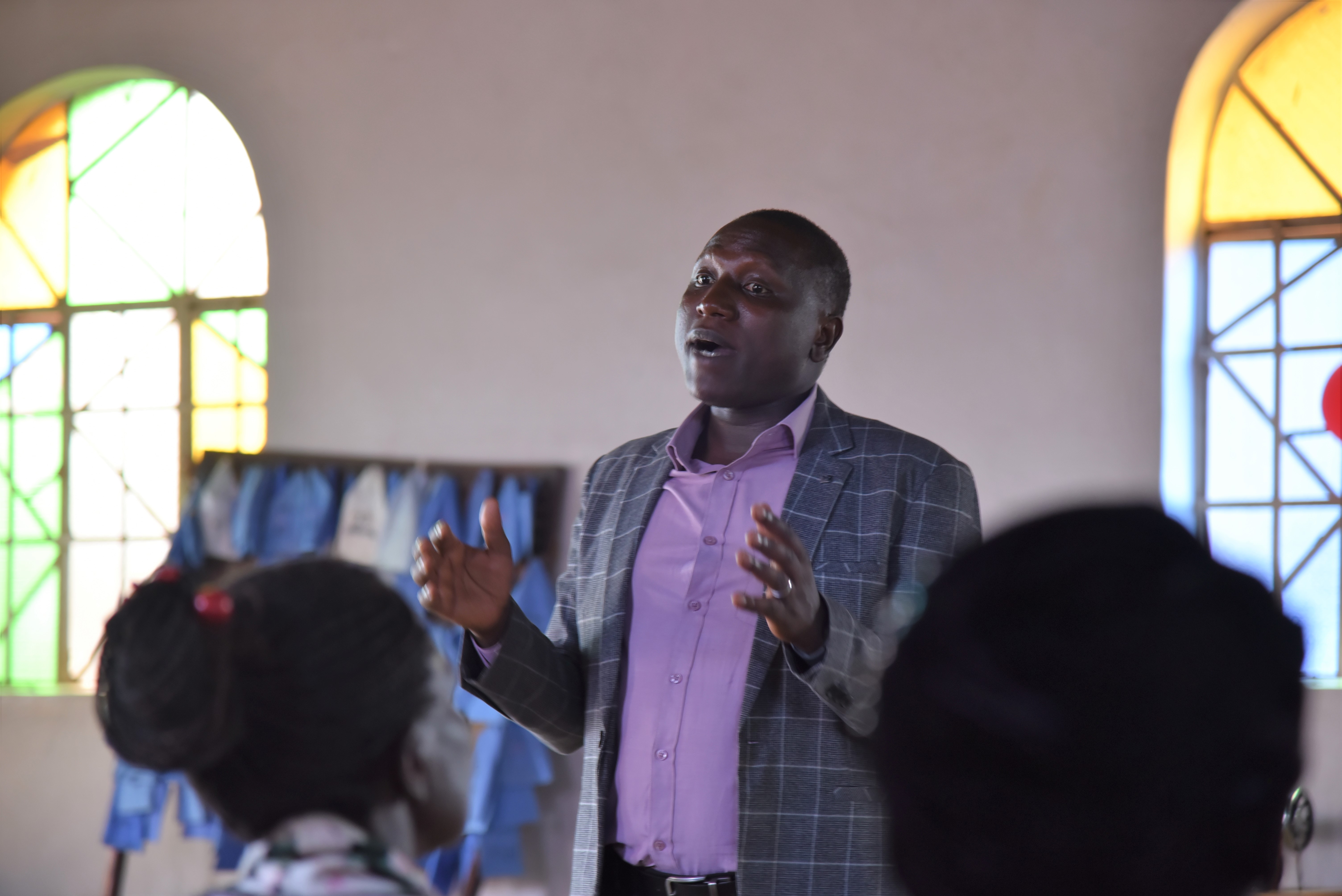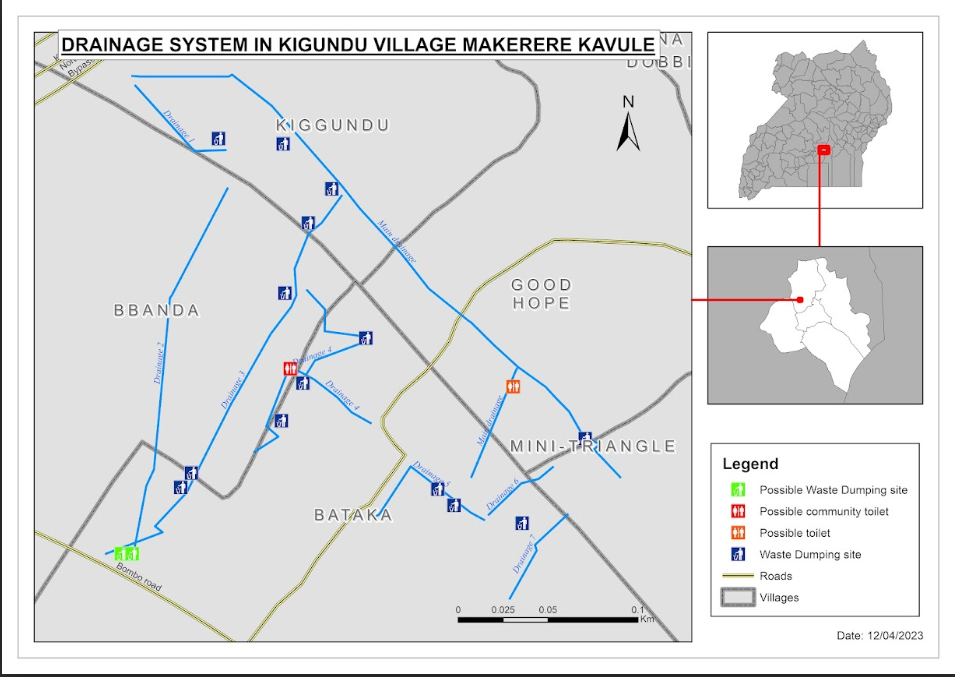Employing Community Solutions to Kampala's Flooding Challenge
June 6, 2023

Drainage system within Kampala's Makerere Kavule informal settlement
In Uganda's capital city of Kampala, floods pose a real threat to the city and its residents with potential to endanger human life and impair economic activity. According to the Kampala Flood Mapping Technical Report (World Bank, 2018), over 170,000 residents are regularly affected by flooding and the average annual cost of building damages caused by floods in Kampala is close to US$50 million.
In urban areas like Kampala, effective waste management serves as a key component within any complex urban management system and an important factor in flood control. Poor waste management can contribute to urban flooding by blocking drainage systems, in turn increasing debris and harbouring disease vectors. Heavy rainfall within Kampala regularly leads to heavy flooding, especially in high-density informal settlements, leading to loss of property and numerous health risks.
The UNDP Uganda Accelerator Lab has partnered with Uganda's National Environment Management Authority (NEMA) and Kampala Capital City Authority (KCCA) to address the impact of flooding in Kampala's informal settlements, applying collective intelligence methodology to implement a design challenge and enable communities to design low-cost and resilient drainage systems to overcome the impact of flooding on their livelihoods.
As part of this programming, UNDP carried out assessments to map existing waste dumping sites, drainage channels connected to the main drainage system, and waste disposal facilities. Assessments were conducted in Makerere Kavule, Kigundu and Sebina through consultation with local leaders, community meetings, focus group discussions, individual interviews and Geographic Information System (GIS) mapping. A rapid assessment was also conducted to determine the community’s willingness to participate in the design challenge intervention. Information collectied from these assessments is being used to inform the team's portfolio of experiments on drainage systems and waste management as measures for flood control and resilience building in target communities. The findings will enable the UNDP Uganda Accelerator Lab to test a portfolio of experiments including:
- Waste management solutions (decomposable, plastic and human waste).
- Community design and construction of resilient drainage systems.
- Community empowerment and mindset change on climate actions.

UNDP Uganda Accelerator Lab's Head of Exploration, Nathan Tumuhamye during a Community Feedback Session
In the first learning cycle, the Accelerator Lab team tested community willingness to participate in the generation of data to inform drainage system design. The testing plan involved three main activities of i) testing different methods of reach for the community, ii) data collection and analysis, and iii) feedback and presentation of findings to the community.
In the second learning cycle, the team built on community engagement efforts where we were able to identify key interventions as suggested by the community. Within this cycle, the team conducted a mapping exercise involving four main activities of i) identifying partners within the community, government and private sector to assist with mapping, ii) testing a storyboard detailing the journey map within the community, iii) data coilection, analysis and visualization, and iv) community feedback.
Regarding preferred methods to engage with communities, participants identified the ue of community radio announcements, local council meetings and peer-to-peer interactions as the main methods. Meanwhile to address the existing flooding challenge, communities identified two main solutions of i) construction, expansion and maintenance of drainage systems, and ii) improved waste collection and management.

Drainage System Map of Kigundu Village in Makerere Kavule
Results and Conclusion
Applying lessons from the first learning cycle where communities identified drainage systems and waste management as critical to address the flooding challenge, the Accelerator Lab team conducted a mapping exercise highlighting drainage channels, waste dumping sites and potential sites for public toilets. From the findings, it is clear that almost all waste dumping sites are located within the vicinity of drainage channels, implying that heavy rains risk clogging drainage channels with waste and in turn leading to floods.
Through this process of collective intelligence design, the team has learned that:
- Sustainable waste management is a key component of building flood resilience within informal settlements.
- Communal waste collection points usually lead to mismanagement of waste. Waste sorting should instead be conducted away from the settlements.
- Land owners must be engaged as key stakeholders in the community.
- Feedback to communities is a vital part of citizen engagement.
- Construction of drainage tributaries requires collaboration between community, city authorities and environmental authorities.
- Community engagement is a vital to builing resilient solutions to community challenges,
Learnings from these assessments are being utilized by the UNDP Uganda Accelerator Lab to set up a portfolio of experiments to test solutions on drainage systems, waste management and human waste disposal as a means of protecting livelihoods of communities most impacted by urban flooding.
By Nathan Tumuhamye, Head of Exploration; Berna Mugema, Head of Experimentation; and Hadijah Nabbale, Head of Solutions Mapping.

 Locations
Locations